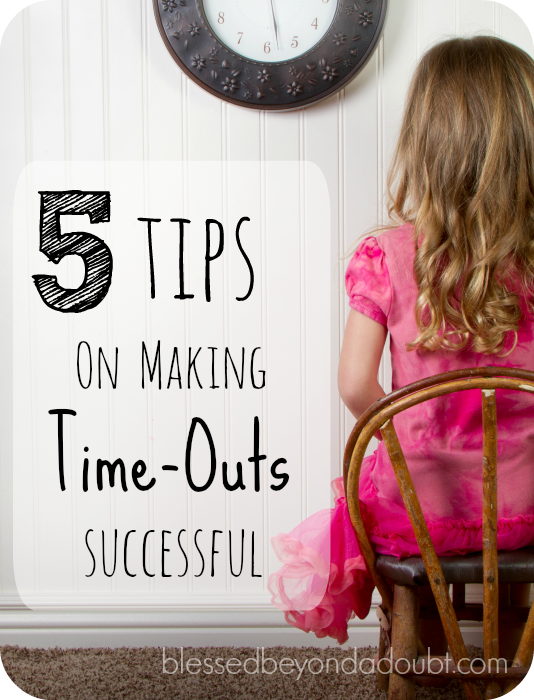
Are you tired of fighting with your child about time-outs?
Well, there is a way to make a time-out more successful, it’s just a matter of matching the right tip to your child.
Stop fighting with your child and make time-outs more successful with these tips.

Be Consistent
How many times do we tell our children to go to timeout and then we forget? Making timeouts more successful is all about being consistent. Follow through with what you say, so that when you tell your child to go to timeout, they know you are being serious.
Create a Designated Timeout Area
Your child needs to know where to go for timeout. You can’t simply tell them to go to timeout and expect them to know where to go. Put a designated timeout in place so your children know where to go when it’s time for timeout. We use a little chair in our living room.
Have Set Rules in Place
Why do your children get sent to timeout? Make sure you have set rules in place so your children know why they will be sent to timeout. Write the rules out and put them in a place in which your children know what and where they are. You can write it on a large magnet and put it on the fridge. You can put it on a chalk board;
the options are endless as long as your children know what the set rules are and where they are located in the home. For little ones, you might have to draw images if they can’t read yet.
Take Time-out Seriously
Time-outs are a classic form of discipline because they can be changed to fit the person that did the crime. If your child looks back and sees you smirking or smiling, time-outs are never going to be successful. Sure, sometimes things our children do are unbelievable and funny, but you have to do your best to have a serious face and implement those time-outs.
Give Rewards When Needed
When you have a system, like time-outs in place, you need a reward system as well. Maybe your child actually listened to you the first time instead of you telling them over and over again. Allow them to pick out of a prize box or avoid doing a chore this week.
Another great tip when trying to make time-out more successful is to set a timer. When you set a timer, you are letting you and the child know when timeout is over. As a parent, it’s easy to get busy and forget how long your child is in timeout. Make it less hard on everyone by letting your child out of timeout on time.
Do you have any time-out tips to add?










Leave A Comment